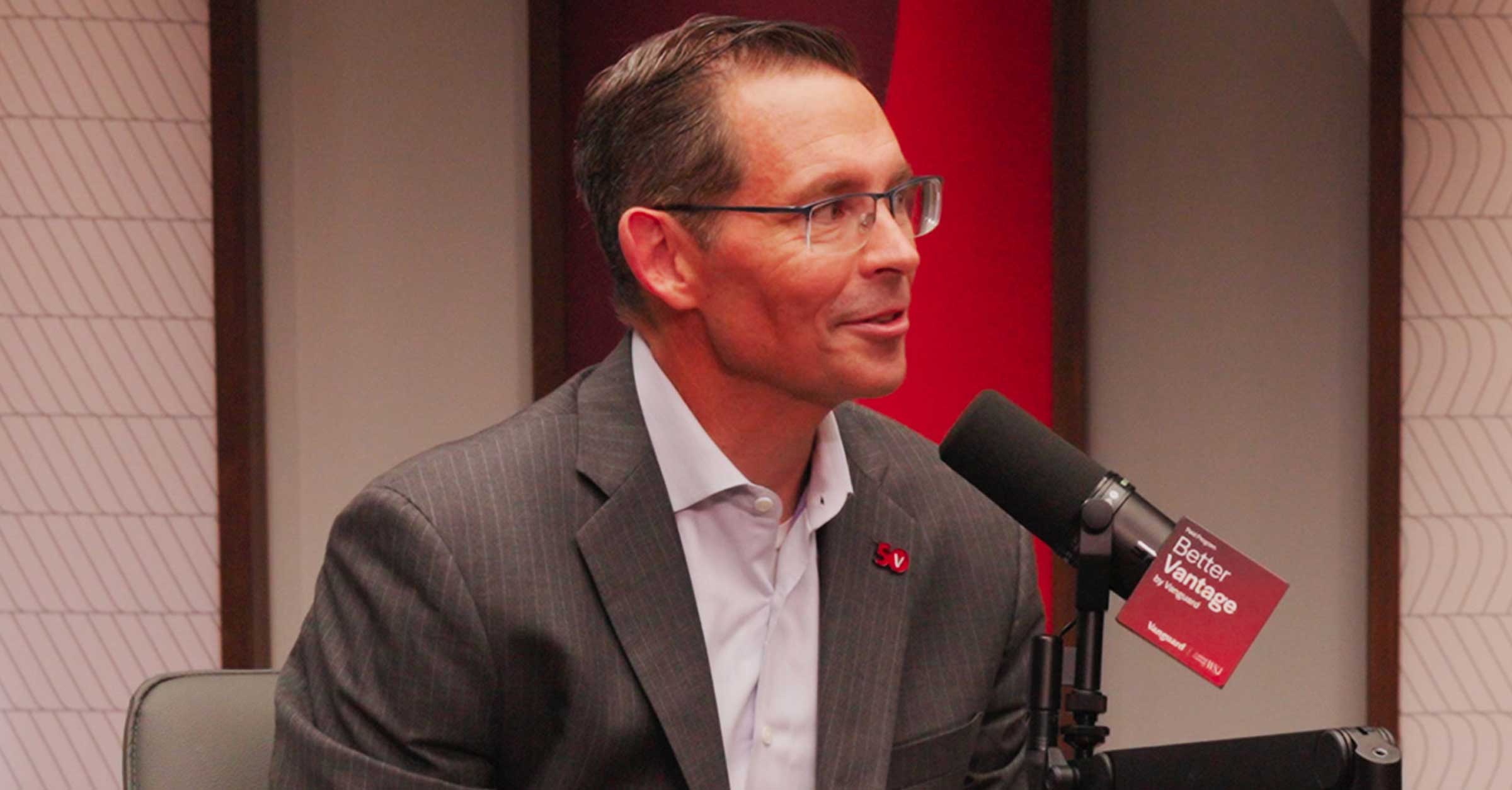Expert insight
What the conventional economic wisdom is missing
November 18, 2025
In a recent commentary for Project Syndicate, Joe Davis, Vanguard’s global chief economist, challenges the consensus view that expects steady U.S. GDP growth and inflation near 2%. He notes an unusual signal: the simultaneous rise of gold and tech-heavy U.S. stock indexes, a phenomenon that hints at deeper structural shifts. Davis sees two competing forces shaping the economy’s future. These are the transformative potential of AI and the drag from mounting fiscal deficits.
Drawing on extensive research, he presents two divergent scenarios:
In the first scenario, AI wins. AI emerges as a general-purpose technology, propelling economic growth above 3% and boosting corporate earnings. Investors, eager not to miss this opportunity, drive up tech stocks.
In the second, deficits dominate. AI disappoints, and fiscal burdens—aggravated by societal aging and geopolitical tensions—keep interest rates high and growth sluggish. Gold serves as a hedge against monetary instability.
But Davis cautions that simply balancing gold and tech stocks won’t adequately manage future risks. Instead, he suggests investors look toward non-tech sectors and international equities, which historically benefit as new technologies diffuse. Even in the second scenario, gold may lag if the Federal Reserve remains committed to fighting inflation, favoring bonds and non-U.S. stocks.
Ultimately, Davis urges economists and investors not to ignore the unconventional signals in financial markets, as they point to imminent structural economic change.
Notes:
All investing is subject to risk.

